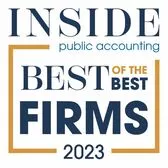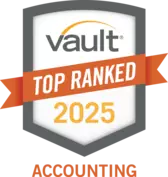As we approach the end of 2021 it is time for opportunity zone investors to get their Qualified Opportunity Funds (QOFs) and Qualified Opportunity Zone Businesses (QOZBs) in order to comply with the opportunity zone Regulations. Prior to year-end, QOFs and QOZBs must complete their semi-annual testing by December 31st and QOZBs must have their business plans and cash flow projections in place in order to comply with the Working Capital Safe Harbor provisions.
Following are 4 key action items required for most QOFs and QOZBs by year-end.
December 31st, 2021 is the last day for taxpayers to roll capital gains into a QOF and receive a 10% step-up in the tax basis of the QOF after a five-year hold. Capital gains will still be eligible to be rolled into QOFs through September of 2027 for certain taxpayers, however, the 10% basis increase will not be available unless Congress passes extension provisions.
Investors should also be aware of the QOF testing deadlines. For QOFs formed in 2021, the first testing deadline will be either December 31st, 2021, or if formed prior to June the testing date will be six months from the date the entity self-certified as a QOF. In the following years, the testing dates will be June 30th and December 31st for calendar year QOFs. It is important to work with your CPA by providing detailed balance sheets as these dates approach to ensure that at least 90% of the QOFs assets consist of Qualified Opportunity Zone Property (QOZBP).
- When a new QOF is formed and funded, it is critical to also form and fund a subsidiary entity (QOZB) within six months from the date of self-certification. At least 90% of the QOF’s cash should be dropped into the QOZB by that date. This will allow the Fund and investors to qualify for the 31-month Working Capital Safe Harbor (WCSH) period at the QOZB level, which provides for 31 months to invest at least 70% of the QOZB funds into QOZBP while remaining in compliance with the testing requirements. It Is also important to note that the QOZB must generally be the purchaser of any opportunity zone property. A simple example would be the taxpayer invests qualified capital gains into a QOF, the QOF forms and funds a QOZB, and then the QOZB uses the cash to purchase real estate or an operating business.
- In order to qualify for the Working Capital Safe Harbor, QOZBs must have a written business plan prepared as soon as possible after the QOZB funding date. The plan must include a statement that the QOZB’s funds are designated for use in the opportunity zone business. The business plan must also include a schedule showing a projection of how the working capital assets will be used within the 31-month period. Lastly, the QOZB assets should be utilized in a way that is consistent with the business plan.
- QOZBs are still subject to the same asset testing deadlines as QOFs, but the compliance requirements are slightly more lenient. QOZBs must hold at least 70% of their assets in QOZBP, as opposed to 90% for a QOF. During the Working Capital Safe Harbor period, all working capital assets are generally considered to be QOZBP for compliance purposes.
- If a QOF or QOZB fails the respective 90% or 70% tests, penalties may be assessed on a monthly basis at the QOF level. The penalty is equal to the short term applicable federal rate (AFR) plus three percent (current rate is 3% for Partnership/LLC and 5% for large corporations), multiplied by the difference between the QOF’s actual qualified opportunity zone property and the amount of property required to meet the 90% test. For larger QOFs, these penalties can be significant.
For questions, please reach out to our OZ team:
Blake Christian, CPA/ MBT Partner
Office (435) 200-9262
Cell (562) 305-8050
Blake.Christian@hcvt.com
Gina Ballard, Principal
(562) 216-1809
Gina.Ballard@hcvt.com
Ryan Mark, Principal
(310) 566-6803
Ryan.Mark@hcvt.com
Alejandra Lopez Senior Manager
(562) 216-5516
Alejandra.Lopez@hcvt.com
Abi Yanke, Senior Staff Accountant
(435) 200-9267
Abi.Yanke@hcvt.com


